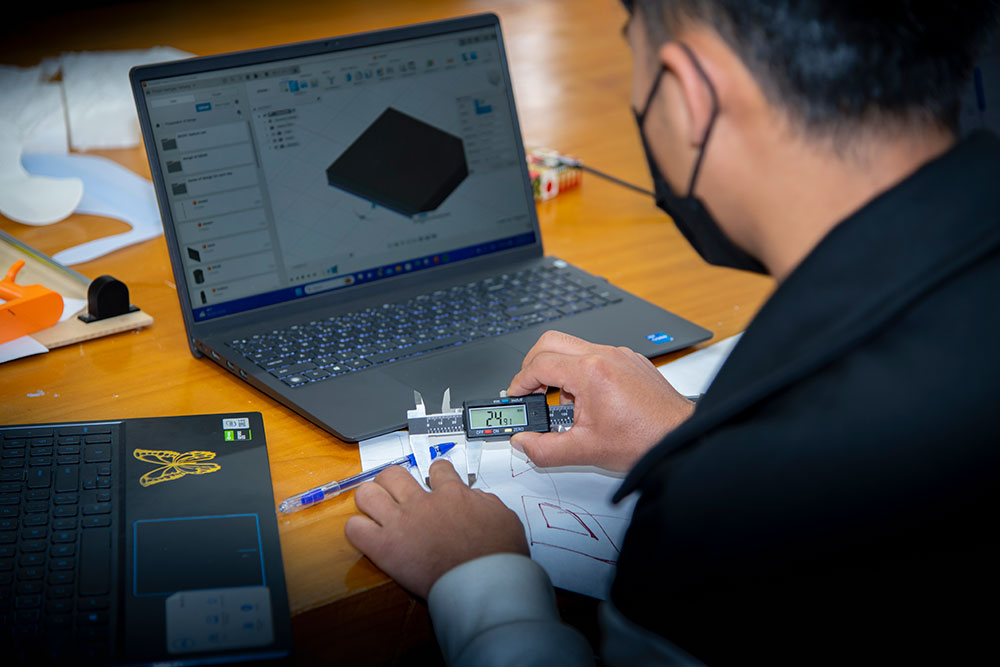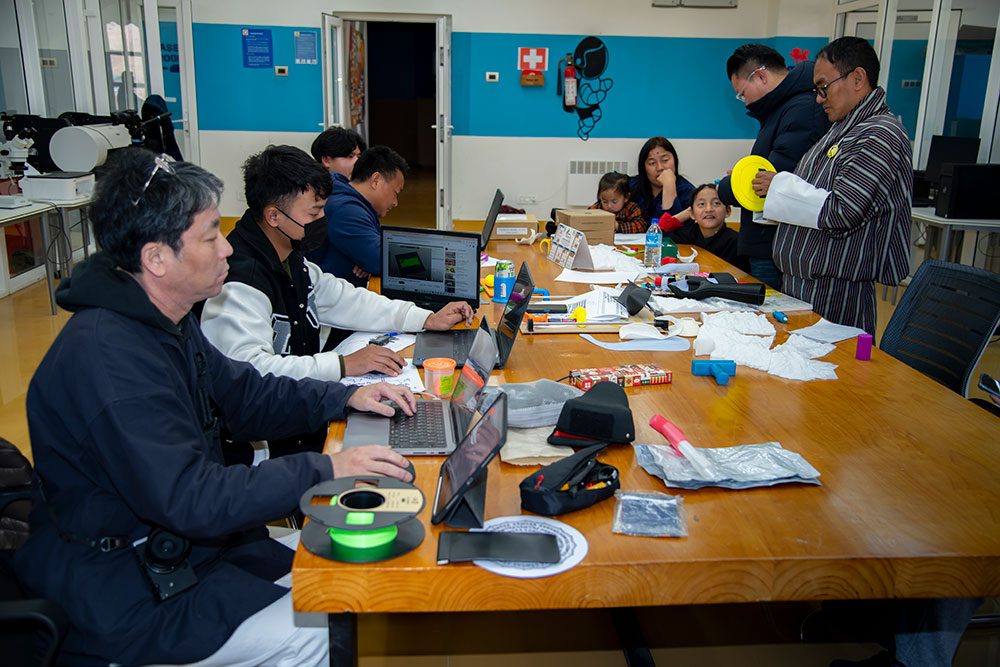KP Sharma
About 70 individuals participated in a three-day event at the Jigme Namgyel Wangchuck Super Fab Lab in Thimphu, organised by the Ministry of Education and Skills Development (MoESD) JNWSFL, with support from the Asian Development Bank (ADB).
The event aimed to address real issues faced by people with disabilities by harnessing the collective expertise and knowledge of participants from various fields.
The focus was on showcasing the capabilities of 3D printing technology to create assistive devices for children and youth with disabilities in Bhutan.

The event aims to raise awareness among key stakeholders
Additionally, the event aimed to raise awareness among key stakeholders about 3D-printed assistive devices and promote the development of these devices through an open platform accessible to everyone in Bhutan and beyond.
Ryotaro Hayashi, a Social Sector Economist from the ADB, stated that seven groups, each consisting of around 10 individuals, had been working on disability challenges related to cooking, drawing, driving, smart canes, and a Bhutan map for the visually impaired.
“Participants were carefully selected based on their strong motivation to contribute to the event and a balance of technical expertise in digital fabrication, special education teaching experiences, occupational therapy, physiotherapy, and government officials,” he added.
Hayashi mentioned that people with disabilities in Bhutan could benefit from customised assistive devices developed during the Makerthon.
He also highlighted the commitment of participants to continue supporting individuals with disabilities by producing and delivering assistive devices to enhance their independence.
The Makerthon event, hosted at the JNW Super FabLab, received support from the CST FabLab team led by Dr Karma.
“The goal is to make the Makerthon an annual event to sustain momentum, with the first one supported under the Japan Fund for Prosperous and Resilient Asia and the Pacific (JFPR) as part of MoESD’s Pathways for Emerging Skills and Jobs Project backed by the ADB,” said the economist.
Hayashi explained that the Makerthon provided a valuable opportunity for participants to understand the intricacies of designing assistive tools for specific individuals.
He added that this experience enabled participants to identify gaps in their knowledge and learn whom to consult when creating tools for people with disabilities.
Sharing his experience, Kinzang Tshering, a class eight student from Changangkha Middle Secondary School, expressed gratitude for the opportunity and believed that the knowledge gained during the event would be beneficial in the future.
SEN Program leader, Dawa Drukpa from Bjishong CS in Haa, stated that such platforms offered a great opportunity for disabled students to showcase their talents and abilities, enhancing their skills and knowledge.
He added that although these students may face physical disabilities, they were intellectually sound.
The event was funded by the Japan Fund for Prosperous and Resilient Asia and the Pacific (JFPR) under MoESD’s Pathways for Emerging Skills and Jobs Project supported by ADB.


